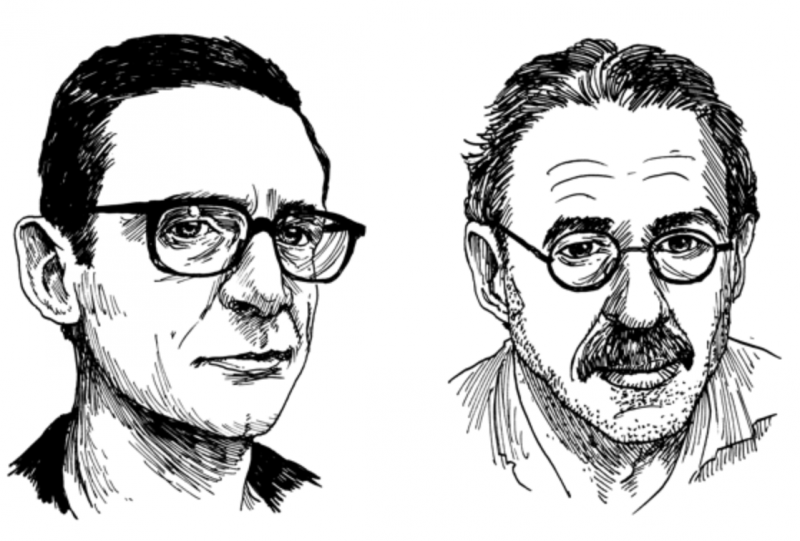Chuck Palahniuk drives an inconspicuous white Prius station wagon. When we meet, it is on a balmy Monday morning outside the Portland, Oregon, airport, where he has offered to collect me and bring me to the home of his longtime friend and mentor, Tom Spanbauer. In a pleasant email exchange before our meeting, Palahniuk wrote, “I’d prefer to share the spotlight… I’d much (MUCH) rather talk about the PDX writing scene, and recognize Tom as most of its source.”
Spanbauer—the author of five books himself—has been teaching his Dangerous Writing course out of his basement for more than twenty years. For a reasonable fee, established and aspiring writers are encouraged to reach into the painful, slimy cognitive chasm, pull out the most frightening morsels, and express them in the clear, minimalistic style that he advocates. More than forty of his students have published. Palahniuk is his biggest success story, not only in commercial terms (eleven novels, including the hits Fight Club and Choke, film adaptations of those books, and a rabid fan base that calls itself “the Cult”) but also in ideological terms, which Spanbauer attributes to Palahniuk’s “imagination of violence.”
When we pull up to Spanbauer’s house, in Portland’s southeast quarter—a friendly, ramshackle place that has a clubhouse feel and a janky gate—Palahniuk is a little concerned about our arrival time: we are forty-five minutes early. Spanbauer is sick—he was diagnosed with AIDS in 1988—and has a strict schedule of when he must eat. We’ll be interrupting his lunch. But when we knock on the door, he pulls it open and greets us with warmth, ease, and energy. He has disco music playing in the background as he heats up soup on the stove and does a jokey dance move before turning it off.
We conducted the interview around Spanbauer’s square dining-room table. Both men traded off answers with generosity and thoughtfulness, interpreting the questions with clarity and treating each other with great tenderness. The conversation lasted nearly three hours. Palahniuk began the interview sitting with his chair facing the table, and in the middle stood up so that he could turn it backward, then near the end turned it around to the front again. Spanbauer lit a candle and ate cream of chicken soup.
—Kathryn Borel
I. “YOU’RE ALWAYS LOOKING FOR THAT DRAMATIC ARC OF WHERE THINGS CAN FAIL.”
THE BELIEVER: I don’t want to talk too much about Fight Club, but I do want to talk about something you’ve frequently said in interviews about it. You said that it bought you your freedom. Can you describe the specific nature of that freedom? I assume it’s more than just the money you received from the book’s...
You have reached your article limit
Sign up for a digital subscription and continue reading all new issues, plus our entire archives, for just $1.50/month.
Already a subscriber? Sign in





